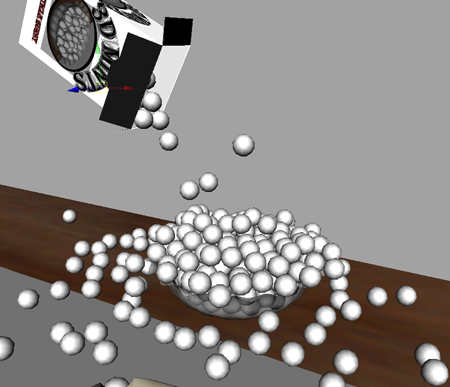You can adjust nParticleShape node attributes to specify how the particles look, move, and collide with other Nucleus objects. Adjusting the emitter attributes also affects the overall characteristics of your nParticle simulation.
To make the nParticles look and behave like candy, you will increase their size, change their color, and make their surfaces sticky.
To change the color of the nParticles

For this simulation, the color of the nParticles will not change so you only need one ramp marker.
The nParticles now look more like candy, but too many nParticles are being emitted, which is overflowing the bowl.
To solve this problem, you can reduce the number of nParticles by adjusting the emitter attributes. Like many Maya attributes, you can set a key to change the emission rate at a specified time in the simulation.

To key nParticle emission rate
 -click Rate (Particles/Sec) and select Set Key from the shortcut menu.
-click Rate (Particles/Sec) and select Set Key from the shortcut menu.
A key is created with the nParticle emission rate set at 50.
nParticles are now emitted until frame 55, which is just enough to fill the bowl.